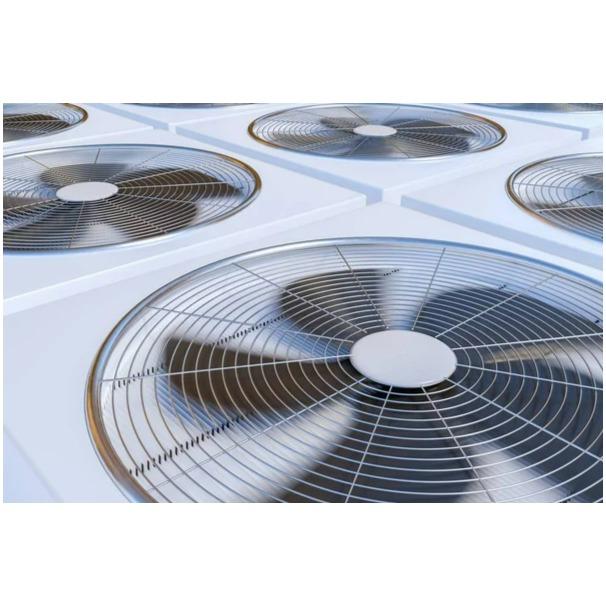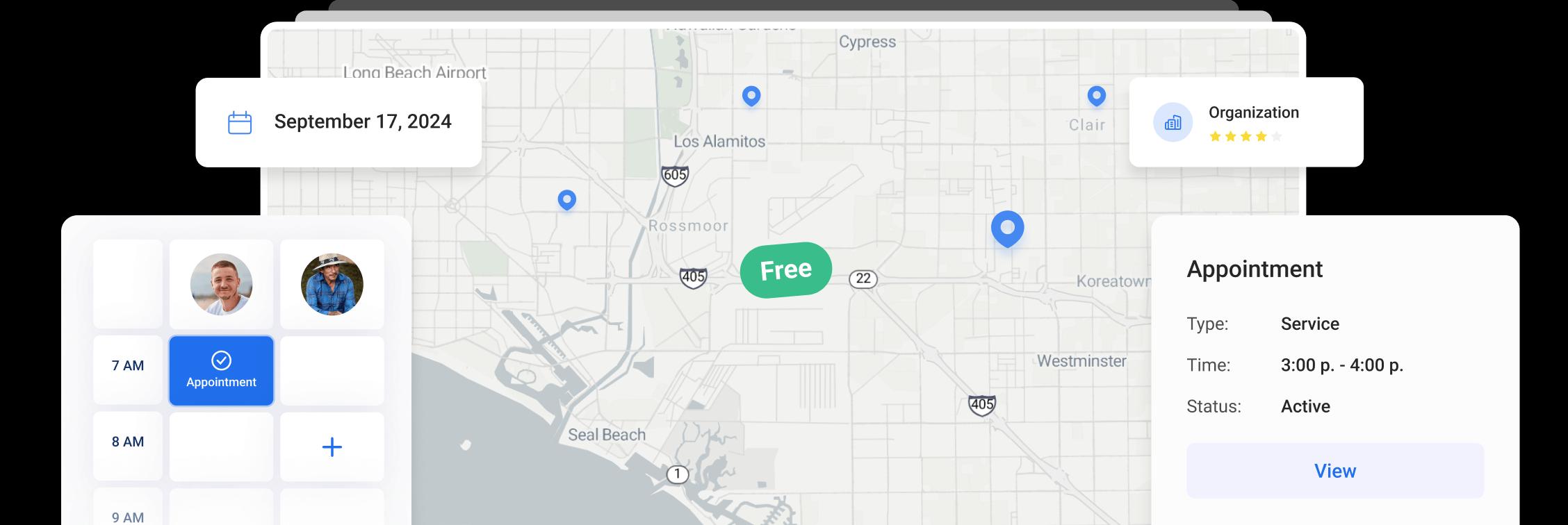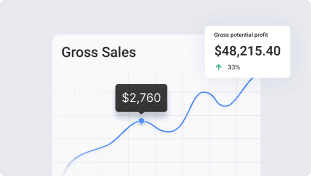
10 Key Steps for Starting an HVAC Business in 2024
The heating, ventilation, and air conditioning (HVAC) industry continues to grow strongly and represents a promising opportunity for entrepreneurs.
In this detailed article, we'll take you through the steps of launching a successful HVAC service business. You'll get essential tips on creating a business plan, estimating start-up costs, obtaining the necessary licenses and insurance, and effectively marketing and hiring qualified staff.
Starting an HVAC business is not only a way to realize your entrepreneurial ambitions but also an opportunity to provide a vital service to your local community. Following this article's step-by-step instructions, you can overcome potential obstacles and lay a solid foundation for a thriving HVAC business.
10 Steps to Run a Successful HVAC Business
Below is a step-by-step guide to the critical steps in starting an HVAC business:
-
Writing a business plan for HVAC
-
Determining the list of HVAC services to be offered
-
Obtaining the necessary licenses
-
Understanding insurance and warranty requirements
-
Financial planning
-
Developing a pricing strategy
-
Purchasing equipment and tools
-
Hiring qualified staff
-
Branding and marketing strategy
-
Implementation of special HVAC business software
By following these critical steps, you can lay a solid foundation for your company's successful launch and growth.
Step 1. Writing a business plan for the HVAC
The first step in learning how to start your own HVAC business is to develop a detailed business plan that covers all aspects of your future company. A good business plan will help you plan your resources, equipment, and expenses and become your calling card when attracting investors.
Step 2. Define the list of services offered by HVAC
Before starting a HVAC company, clearly define what kind of HVAC services you plan to provide: installation, repair, heating/cooling/ventilation maintenance, etc. Focus on local market demand and your experience in a particular HVAC area.
Step 3. Obtaining the necessary licenses
One of the most critical steps in starting a heating and air conditioning company is obtaining the appropriate licenses and certifications. Licensing requirements can vary significantly from state to state, so carefully review all regulations in your area.
Typical types of licenses for HVAC companies:
-
Contractor's License. This general license is required for HVAC installation, repair, and maintenance. In most states, you must pass a qualifying exam and provide a certificate of insurance. The cost and procedure for obtaining a license is determined at the state level.
-
Specialized licenses. In addition to the general license, additional licenses may be needed depending on the type of work being performed — licenses to work with refrigerants, gas systems, electrical equipment, etc.
-
Licenses for handymen and specialists. Some states require separate licensing for certified HVAC foremen and technicians to be licensed to perform work independently.
-
Municipal licenses and permits. Additional requirements may apply at the local level, such as a business license, building permits, zoning compliance certificate, etc.
-
Depending on the jurisdiction, the license process can take weeks to months. You should research all requirements and complete the necessary training/certification beforehand.
Timely licensing of HVAC businesses is critical, as operating without the proper permits can result in severe penalties.
Step 4. Understanding insurance and warranty requirements
Insurance is a critical aspect of any HVAC business. It protects the company and its employees from financial risks associated with potential lawsuits, property damage, injuries, and other unforeseen situations. In addition, having the necessary insurance policies in place is often a prerequisite for licenses and contracts.
The main types of insurance for HVAC companies are:
-
General Liability Insurance. Covers damage caused to third parties due to the work, including bodily injury, property damage, advertising claims, etc.
-
Professional Liability Insurance. Protects against lawsuits related to errors, omissions, and shoddy service delivery.
-
Commercial Automobile Insurance. Mandatory for companies that use vehicles to travel to clients.
-
Employee Insurance. Covers medical and workers' compensation costs for employees injured on the job.
-
Property Insurance. Protects company offices, warehouses, equipment, and tools from damage, theft, and natural disasters.
-
Insurance coverage and premiums depend on the business's specifics, the number of employees, the cost of equipment, and other risk factors.
The insurance coverage and premiums depend on the specifics of the heating and air conditioning business, the number of employees, the cost of equipment, and other risk factors. Proper insurance planning is crucial when learning how to start a heating and air conditioning business.
Step 5. Financial Planning
If you plan to start a heating and air conditioning company, carefully analyze all upcoming expenses, including equipment, transportation, office, insurance, and salaries. Calculate the necessary investments and plan for potential funding sources for the startup.
Step 6. Develop a pricing strategy
Determine the best pricing approach to recoup costs and make a decent profit. Study competitors' pricing policies, and consider the skill level of your employees and the specifics of your business.
By allocating capital wisely in the initial stages, you can avoid financial difficulties and lay the groundwork for the future growth of your HVAC company. Regularly review your budget and economic models to respond to market changes and optimize costs.
Step 7. Purchase equipment and tools
Invest in quality tools and equipment to get the job done efficiently — a key aspect of how to run a HVAC business productively. Good choices can help you save money on repairs and replacements and increase productivity.
Step 8. Hire qualified staff
As the demand for your services grows, you will need to hire professional HVAC technicians. Choose your staffing carefully, and offer competitive compensation and training opportunities.
Step 9. Brand building and marketing strategy
A clear marketing strategy and building a solid brand are critical to the success of an HVAC business in a highly competitive marketplace. Proper communication will help you stand out in the market, attract new customers, and build loyalty with existing customers.
Brand Development:
-
Define your company's core values and mission. What differentiates you from your competitors?
-
Create a memorable name and corporate identity — logo, fonts, color palette.
-
Develop a corporate website and social media accounts in the same corporate style.
-
Provide a unified visual image — company uniforms, transportation design, etc.
-
Formulate a unique selling proposition (USP) and slogan reflecting your advantages.
Marketing strategy for HVAC:
-
Content marketing — create helpful content (articles, videos) on popular queries in the HVAC sphere.
-
SEO-optimization of the website for promotion in search engines for local queries ("air conditioning repair in NYC," etc.)
-
Setting up targeted advertising in social networks (Facebook, Instagram) and Google Ads.
-
Email marketing — newsletters with promotions, updates, and tips for your customer base.
-
Working with testimonials — monitoring and responding to company reviews.
-
Affiliate programs — partnering and reciprocal advertising with local construction and remodeling companies.
Creating a solid brand and a sound marketing strategy is the key to recognition and success for any HVAC company. Regularly analyze the effectiveness of your marketing efforts using web analytics systems, call tracking, and other tools.
Step 10. Implement specialized software to manage your HVAC business
To improve efficiency and operational management of all aspects of your small business, it is recommended that you implement specialized HVAC software from Orcatec. It will help optimize planning, accounting, and analysis of projects, finance, and marketing.
Improve the efficiency of your business with Orcatec's specialized home services management software, a comprehensive home services management system.
Optimize project planning, organize technicians, keep track of expenses and revenues, and manage marketing campaigns — all in one easy-to-use interface. With Orcatec, you can scale your business and deliver the highest quality services to your customers.
Benefits of Starting an HVAC Business
How to start an HVAC company. Let's take a look at the main advantages:
Low entry threshold
Starting your own HVAC business requires a relatively low initial investment compared to other industries. Getting the necessary licenses, tools, and vehicles is often enough to get started.
No inventory
Unlike retail businesses, an HVAC business does not require a large inventory. You only need the necessary tools and equipment to perform specific jobs and services.
Resilience to economic downturns
The demand for heating and air conditioning repair and maintenance services continues even during recessions. Consequently, HVAC businesses have a good potential for stability during recessionary periods.
Being your boss
The owner of an HVAC company has the advantage of setting his work schedule, selecting projects, and determining all aspects of the business according to his preferences.
High customer lifetime value
The average lifetime of HVAC systems is about 12 years, during which periodic maintenance and repairs will be required. Thus, HVAC businesses often have long-term customer relationships and high lifetime value.
If you're interested in how to start an HVAC business and reap these benefits, follow the step-by-step guide provided in this article.
HVAC Business Startup Costs
Starting an HVAC company requires some capital investment. Typical costs range in the following ranges:
If you already have the equipment and tools you use, the initial investment can range from $2,000 to $10,000. This amount covers basic expenses such as licenses, branding, initial marketing, and purchasing a used vehicle.
However, if you plan to purchase all of the equipment, tools, and vehicles from scratch, the start-up costs can easily exceed $100,000.
A typical checklist of necessary expenses to start an HVAC business includes:
-
Basic tools for HVAC maintenance work (from $5,000)
-
HVAC contractor licenses and certifications (varies)
-
Uniforms and company apparel (from $1,000)
-
Tool transportation equipment (from $10,000 for a used vehicle)
-
Business liability insurance (from $500 per year)
-
Company website (from $300)
-
Marketing expenses (starting at $2,000)
Thus, the initial investment range can vary significantly depending on the size of the planned business and the need to purchase new equipment and transportation.
How Orcatec Software Can Help You to Start Your Own HVAC Company
Orcatec is a leading developer of customized software solutions for HVAC repair, maintenance, and installation service companies. Our mission is to help entrepreneurs effectively manage all aspects of their HVAC business through a single digital platform.
Critical features of Orcatec software for HVAC companies:
Scheduling and dispatching
Create flexible outbound schedules and optimize crew routes with built-in AI-based routing. Assign tasks to technicians from the mobile app.
Project Management
Keep complete project records from estimating to invoicing. Track all phases of work and control budgets and deadlines.
Finance and Accounting
Integrate Orcatec with accounting systems like QuickBooks to automate financial reporting, profitability, and cash flow management.
Marketing and Sales
Use built-in marketing tools for email newsletters, manage testimonials, and launch advertising campaigns. Increase customer loyalty with transparent pricing.
Mobility
Orcatec mobile apps for technicians and managers allow you to manage processes from anywhere — update project statuses, view order details, keep track of time, and more.
Benefits of Orcatec for HVAC companies:
-
Save time and resources by automating routine tasks
-
Digitalization and transparency of all business processes
-
Increased productivity and efficient management of distributed teams
-
Improved customer service and loyalty through operational communications
-
Scalability and preparing the company for growth through flexible management tools
Orcatec is a cutting-edge, innovative platform built with direct input from HVAC industry experts and professional software developers. Increase your business productivity and stay ahead of the competition with Orcatec!
Final Thoughts
The availability of quality professional tools is a critical factor for successful work. The correct set of tools will help you perform your job quickly, efficiently, and with high quality.
Remember that periodically updating and replenishing your tool arsenal is also important as new technologies emerge and labor methods improve.
If you're thinking about how to run an HVAC business, we recommend checking out Orcatec Software. This specialized solution will help you effectively manage all aspects of your business, from project planning and workload distribution to financial reporting and customer relations.
FAQ
What is the best state to start an HVAC business in?
The choice of the state depends on many factors, including demand for services, competition, and regulatory requirements.
Is the HVAC industry profitable?
Yes, the HVAC industry is considered one of the most promising industries.
How Much Does It Cost to Start an HVAC Business?
Start-up costs range from $2,000 to $10,000+ depending on equipment availability, transportation, and investment amount.
What do I need to start my own HVAC business?
Basic requirements: business plan, licenses, insurance, equipment, personnel, and marketing. Conveniently track all steps in Orcatec.
Is there a checklist for starting an HVAC business?
Yes, we have compiled a detailed HVAC business startup checklist to help you avoid missing any vital steps to a successful HVAC startup.
Other Articles
Why Cloud-Based Solutions Are the Future of Field Service Management
Discover why cloud-based solutions are revolutionizing field service management with flexibility, scalability, and real-time data access.
10 min read Jan 13, 2025
Orcatec's Security Measures: Protecting Your Data with Advanced Security Features
Discover how Orcatec ensures your data’s safety with robust security measures, including encryption, access controls, regular audits, and compliance with industry standards. Your data security is our top priority.
5 min read Jan 08, 2025
The Benefits of CRM Software for Contractor Companies
Discover how CRM software streamlines operations, boosts customer relationships, and drives growth for contractor companies. Orcatec's CRM is coming soon!
6 min read Jan 06, 2025
4.95 from 5 based on 17 reviews
Get our latest news

